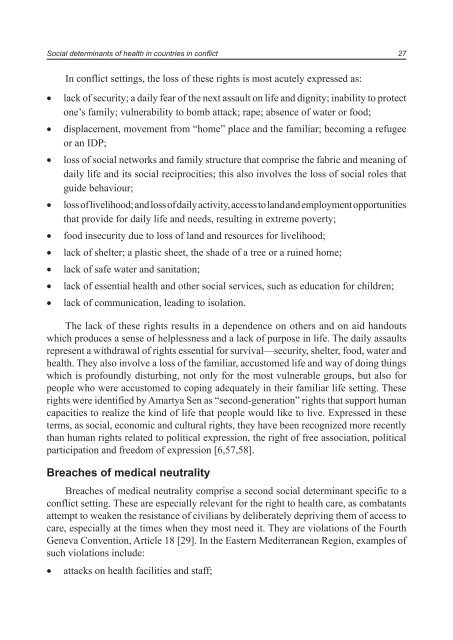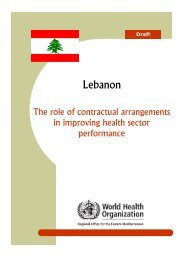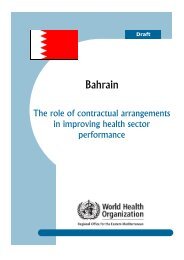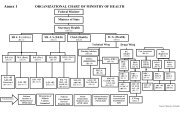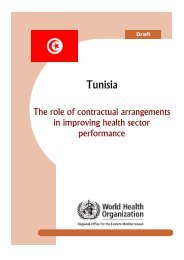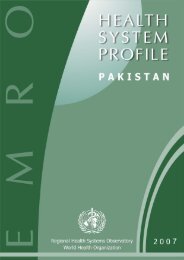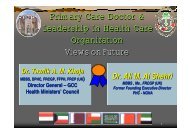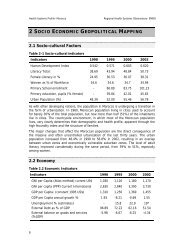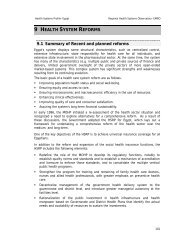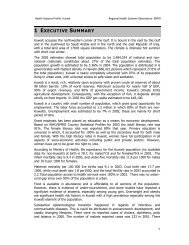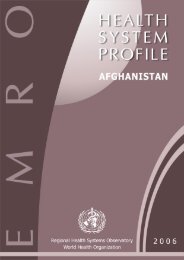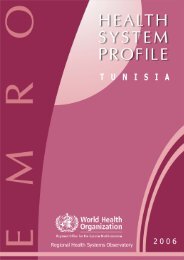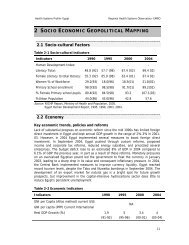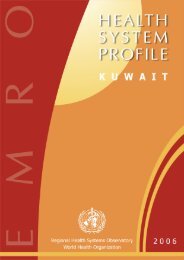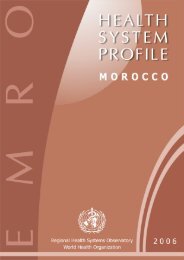Social determinants of health in countries in conflict - What is GIS ...
Social determinants of health in countries in conflict - What is GIS ...
Social determinants of health in countries in conflict - What is GIS ...
You also want an ePaper? Increase the reach of your titles
YUMPU automatically turns print PDFs into web optimized ePapers that Google loves.
<strong>Social</strong> <strong>determ<strong>in</strong>ants</strong> <strong>of</strong> <strong>health</strong> <strong>in</strong> <strong>countries</strong> <strong>in</strong> <strong>conflict</strong> 27<br />
•<br />
•<br />
•<br />
•<br />
•<br />
•<br />
•<br />
•<br />
•<br />
In <strong>conflict</strong> sett<strong>in</strong>gs, the loss <strong>of</strong> these rights <strong>is</strong> most acutely expressed as:<br />
lack <strong>of</strong> security; a daily fear <strong>of</strong> the next assault on life and dignity; <strong>in</strong>ability to protect<br />
one’s family; vulnerability to bomb attack; rape; absence <strong>of</strong> water or food;<br />
d<strong>is</strong>placement, movement from “home” place and the familiar; becom<strong>in</strong>g a refugee<br />
or an IDP;<br />
loss <strong>of</strong> social networks and family structure that compr<strong>is</strong>e the fabric and mean<strong>in</strong>g <strong>of</strong><br />
daily life and its social reciprocities; th<strong>is</strong> also <strong>in</strong>volves the loss <strong>of</strong> social roles that<br />
guide behaviour;<br />
loss <strong>of</strong> livelihood; and loss <strong>of</strong> daily activity, access to land and employment opportunities<br />
that provide for daily life and needs, result<strong>in</strong>g <strong>in</strong> extreme poverty;<br />
food <strong>in</strong>security due to loss <strong>of</strong> land and resources for livelihood;<br />
lack <strong>of</strong> shelter; a plastic sheet, the shade <strong>of</strong> a tree or a ru<strong>in</strong>ed home;<br />
lack <strong>of</strong> safe water and sanitation;<br />
lack <strong>of</strong> essential <strong>health</strong> and other social services, such as education for children;<br />
lack <strong>of</strong> communication, lead<strong>in</strong>g to <strong>is</strong>olation.<br />
The lack <strong>of</strong> these rights results <strong>in</strong> a dependence on others and on aid handouts<br />
which produces a sense <strong>of</strong> helplessness and a lack <strong>of</strong> purpose <strong>in</strong> life. The daily assaults<br />
represent a withdrawal <strong>of</strong> rights essential for survival—security, shelter, food, water and<br />
<strong>health</strong>. They also <strong>in</strong>volve a loss <strong>of</strong> the familiar, accustomed life and way <strong>of</strong> do<strong>in</strong>g th<strong>in</strong>gs<br />
which <strong>is</strong> pr<strong>of</strong>oundly d<strong>is</strong>turb<strong>in</strong>g, not only for the most vulnerable groups, but also for<br />
people who were accustomed to cop<strong>in</strong>g adequately <strong>in</strong> their familiar life sett<strong>in</strong>g. These<br />
rights were identified by Amartya Sen as “second-generation” rights that support human<br />
capacities to realize the k<strong>in</strong>d <strong>of</strong> life that people would like to live. Expressed <strong>in</strong> these<br />
terms, as social, economic and cultural rights, they have been recognized more recently<br />
than human rights related to political expression, the right <strong>of</strong> free association, political<br />
participation and freedom <strong>of</strong> expression [6,57,58].<br />
Breaches <strong>of</strong> medical neutrality<br />
Breaches <strong>of</strong> medical neutrality compr<strong>is</strong>e a second social determ<strong>in</strong>ant specific to a<br />
<strong>conflict</strong> sett<strong>in</strong>g. These are especially relevant for the right to <strong>health</strong> care, as combatants<br />
attempt to weaken the res<strong>is</strong>tance <strong>of</strong> civilians by deliberately depriv<strong>in</strong>g them <strong>of</strong> access to<br />
care, especially at the times when they most need it. They are violations <strong>of</strong> the Fourth<br />
Geneva Convention, Article 18 [29]. In the Eastern Mediterranean Region, examples <strong>of</strong><br />
such violations <strong>in</strong>clude:<br />
•<br />
attacks on <strong>health</strong> facilities and staff;<br />
SDH-chapters-<strong>countries</strong> <strong>in</strong> <strong>conflict</strong>-7 Oct.<strong>in</strong>dd 27 08/10/2008 14:24:50


